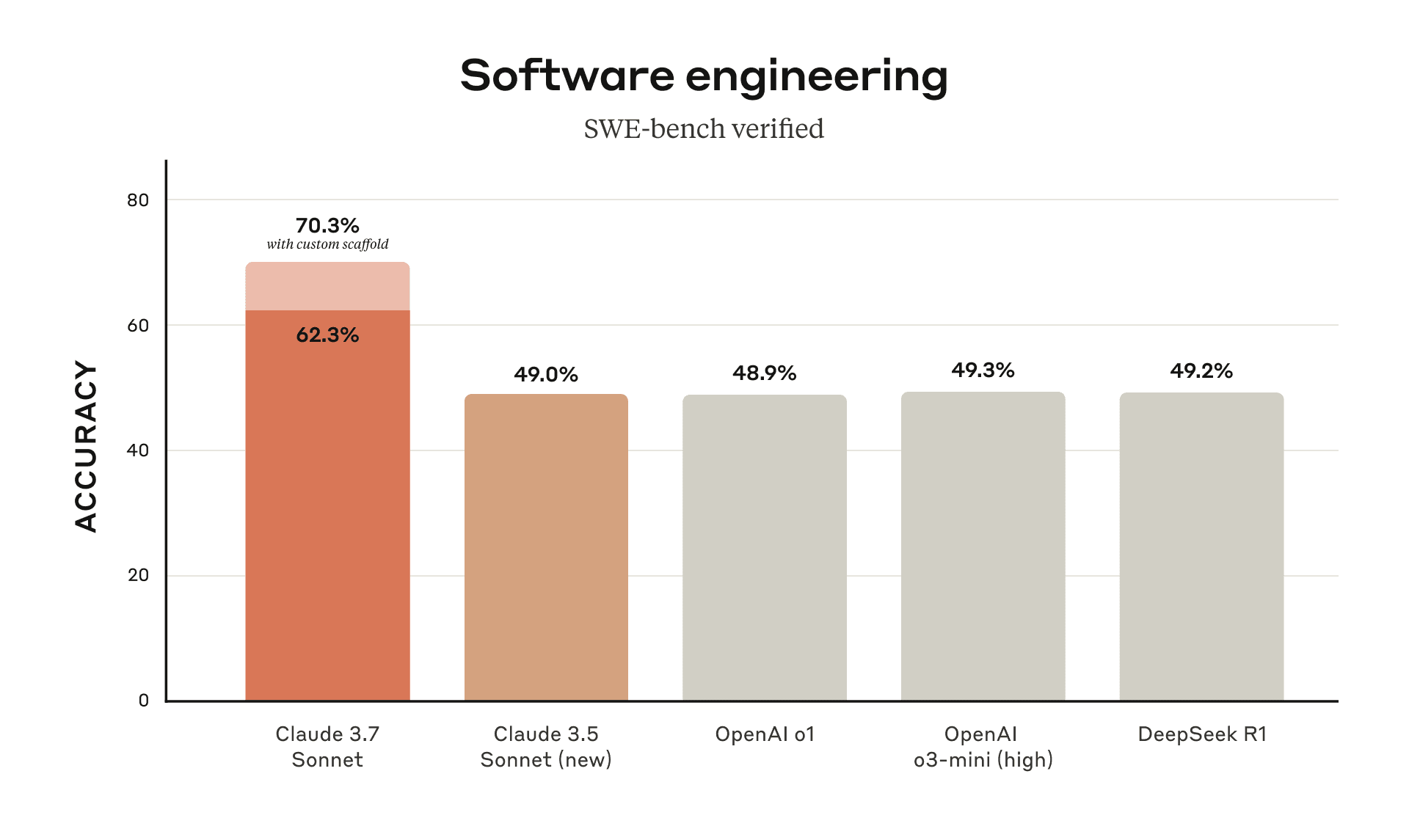Introduction
Yesterday, Anthropic finally dropped Claude 3.7 Sona, the long-awaited AI model that’s both a dream and a nightmare for programmers. With an announcement video that sent the tech world into a frenzy, one of the top comments on that video sums up the hype perfectly:
“People waiting for this video.”
Well, wait no longer. After burning through millions of tokens, I’m here to give you the breakdown. Spoiler alert: Claude 3.7 is insane—it’s next-level at programming, introduces a new “thinking mode,” and most shockingly, it might just replace developers entirely with a new CLI tool called Claude Code.
Let’s dive in and see if the AI influencer panic is justified.
The Power of Claude 3.7: What’s New?

A few weeks ago, Anthropic published a study on AI’s impact on the workforce. Despite programmers making up only 3.4% of all workers, over 37% of AI prompts are related to math and coding. While AI hasn’t outright stolen programmer jobs (yet), it has practically killed Stack Overflow.
For web development, a great benchmark is Web Dev Arena—and Claude 3.5 (the previous version) was already a top performer. However, Claude 3.7 just crushed every competitor, including:
- OpenAI’s GPT-4o Mini, High
- DeepSeek R1
In the software engineering benchmark (real GitHub issues), Claude 3.7 now solves 70.3% of problems—an insane jump in performance.
The Real Game Changer: Claude Code CLI
The most controversial release is Claude Code, a CLI tool that lets developers build, test, and execute code within projects—essentially creating an infinite AI feedback loop. This tool alone has tech influencers claiming “we’re cooked.”
Let’s see how it performs in real-world coding.
Hands-On With Claude Code CLI
Getting Started
Claude Code is in research preview, but you can install it via npm. Before you rush in, be warned: it directly uses the Anthropic API, and Claude isn’t cheap. At $15 per million tokens, it’s 10x the cost of models like Gemini Flash and DeepSeek.
Once installed, the CLI scans your entire project, creating a markdown file with instructions. One immediate observation? The text styling in the CLI looks eerily similar to SST (an open-source tool we’ve covered before). Even the logo is suspiciously familiar, resembling a sketch by Kurt Vonnegut (yes, the author). Intentional or not, it’s a bold choice.
Test #1: Building a Random Name Generator in Deno
First up, I asked Claude Code to generate a random name generator in Deno.
- After entering a prompt, it correctly identified the need for a new file.
- It wrote the code perfectly.
- Even better, it created a dedicated test file to validate correctness.
This test showed Claude’s TDD (Test-Driven Development) capabilities, proving that it can check its own work before finalizing the output.
Test #2: Building a Frontend UI in Svelte
Now for something more complex: I asked Claude to build a microphone visualizer in Svelte, using TypeScript and Tailwind CSS.
The Process
- Claude recognized my tech stack.
- It generated multiple components after a long process.
- Compared to prompting Claude via the web UI, this was way slower.
The Result
The final UI was incredible—smooth waveform and frequency visualization.
However, it ignored my TypeScript/Tailwind preferences and used older Svelte syntax instead of Svelte 5 Runes.
Cost of this session? $0.65. (I could have bought a banana instead.)
Test #3: Building an End-to-End Encrypted Chat App
With end-to-end encryption under fire (Apple recently disabled it in the UK due to government pressure), I asked Claude Code to help me build my own encrypted chat app.
Unfortunately, every LLM has failed at this task, and Claude Code was no exception. After a long session, the final result didn’t even run.
Because I’ve become so AI-dependent, I had no idea how to debug it. My only hope? Wait for the next AI breakthrough.
The Future of AI in Coding
The Good
- Claude 3.7 is state-of-the-art in programming.
- Claude Code is a powerful coding assistant.
- Benchmarks show it outperforms every other model.
The Bad
- It’s expensive ($15 per million tokens!).
- The CLI sometimes ignores project context.
- AI still struggles with complex security-critical applications.
Will it replace human programmers? Not yet. But it might replace junior devs and Stack Overflow entirely.
Final Thoughts
Claude 3.7 Sona sets a new benchmark for AI-assisted programming. While it’s not perfect, the Claude Code CLI hints at a future where AI builds software autonomously.
For now, developers aren’t completely obsolete, but if you’re a beginner, you might want to level up fast—because AI isn’t slowing down.
This has been The Code Report. See you in the next one.
